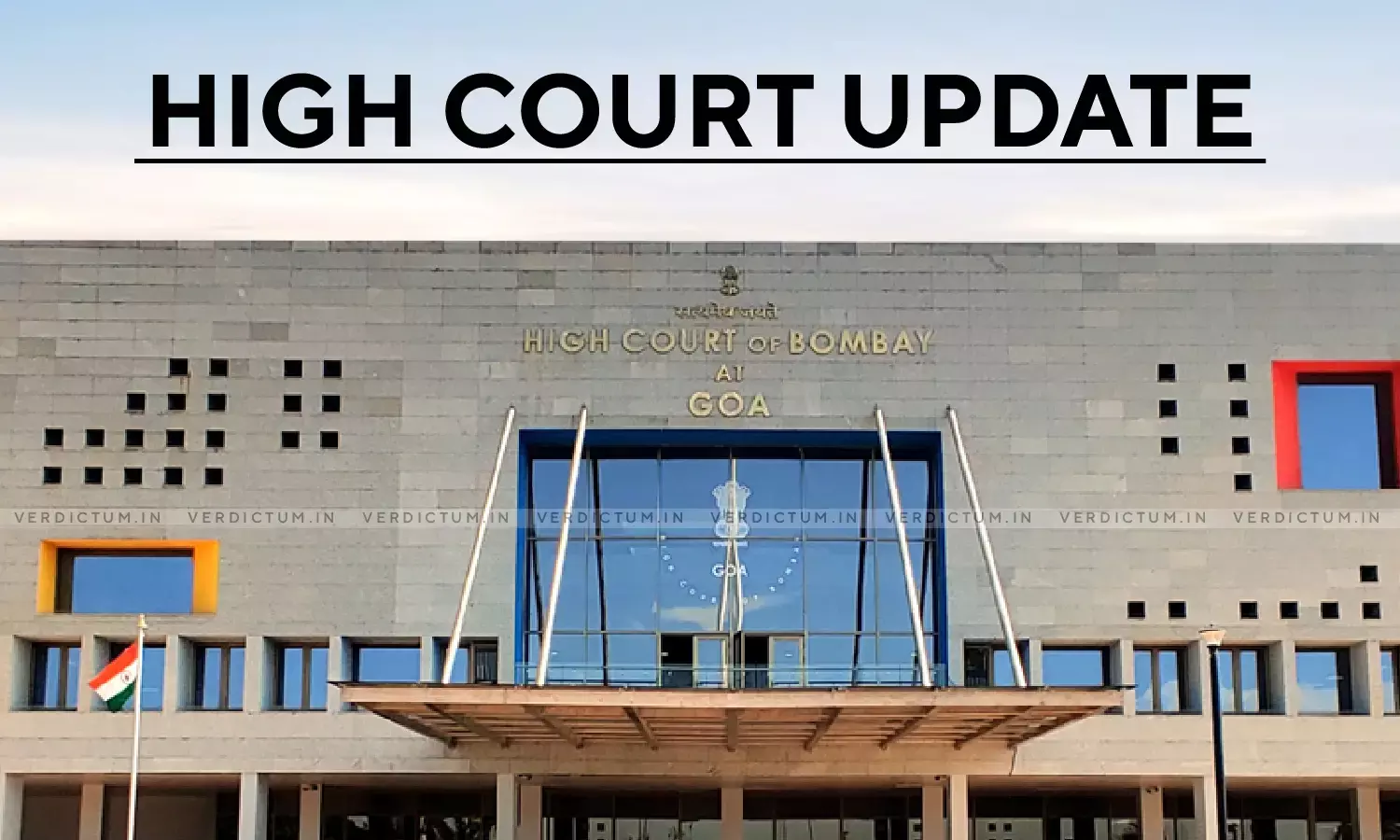Communidade Code| Purpose Of Clause Of Grant Of Plot To Landless Person Is To Encourage Shareholders By Constructing House Within 8 Km Radius: Bombay HC

The Bombay High Court at Goa has said that under the Communidade Code, the purpose of enforcing clause of grant of plot to landless person for construction of house is to encourage the shareholders by constructing their house within the radius of 8 kilometres.
The court was considering a petition challenging an order rejecting an application for grant of a plot of land for construction of house without any auction.
A Division Bench comprising Justice Prakash D. Naik and Justice Bharat P. Deshpande held, “As far as ground no. 4 is concerned, it is contended that the Applicant refused to comply with the observations, claiming that whether all shareholders of Communidade are co-owners of all assets and the land and hence, he cannot be declared as landless unless such persons are eliminated. First of all it is necessary to note that all shareholders of the Communidade are Jonoieros. The requirement is that such a person should not possess or owe any land, property or a house of his own within the radius of 8 kilometres. If the contention as found mentioned in ground no. 4 is accepted, no shareholder who is in fact landless and is not having his own house will be able to apply for a plot for construction of house. The purpose of enforcing such clause of grant of plot to landless person for construction of house is to encourage the shareholders by constructing their own house within the radius of 8 kilometres.”
The Bench added that such a ground is otherwise not provided under the Rules or the Code and therefore, rejection of the petitioner’s application on such ground is completely erroneous.
Advocate Vithal Naik appeared for the petitioner while Additional Government Advocate Pravin Faldessai appeared for the respondents.
In this case, it was the contention of the petitioner that his application was rejected without any sufficient cause and without considering the fact that he had complied with all the necessary formalities for the purpose of grant of plot of land. The petitioner claimed that his application was rejected illegally and arbitrarily only because he filed some complaints against the illegalities committed by the Communidade and by the Administrator, while granting or allotting plots to different persons in the land belonging to Serula Communidade.
It was further submitted that the application was kept pending without any reason by the Administrator of Communidade. It was also contended that the application was processed by the authorities and the petitioner complied with all the Rules and Regulations for the purpose of granting of plot for the construction of the house.
The High Court in the above context of the case noted, “Ground no. 5 is again a communication to the Petitioner to accept the revised rate of lease, on the basis of the letter of the Government dated 04.10.2006. This ground is again baseless for the simple reason that all formalities including valuation of the plot in question was carried out in the year 1996 itself and the entire file with the approval of the Administrator was forwarded to the Government. This file was kept pending without any decision.”
The Court said that as per the Code, the Government is supposed to take a decision on such application within a period of six months and thus, such a ground is of no assistance which shows arbitrariness in deciding the application of the petitioner.
“The other grounds are also similar in nature and thus, we are unable to accept such reasons for rejection of the Application for grant of a plot. Reply affidavit filed on behalf of Respondents cannot be accepted for the simple reason that there is delay on the part of the Government in deciding such Application, which is not at all explained. The Petitioner cannot be blamed for such a delay as he produced all the necessary documents in time”, observed the Court.
Accordingly, the High Court disposed of the petition and quashed the impugned order.
Cause Title- Arvind G. Shirodkar v. The State of Goa & Ors.


